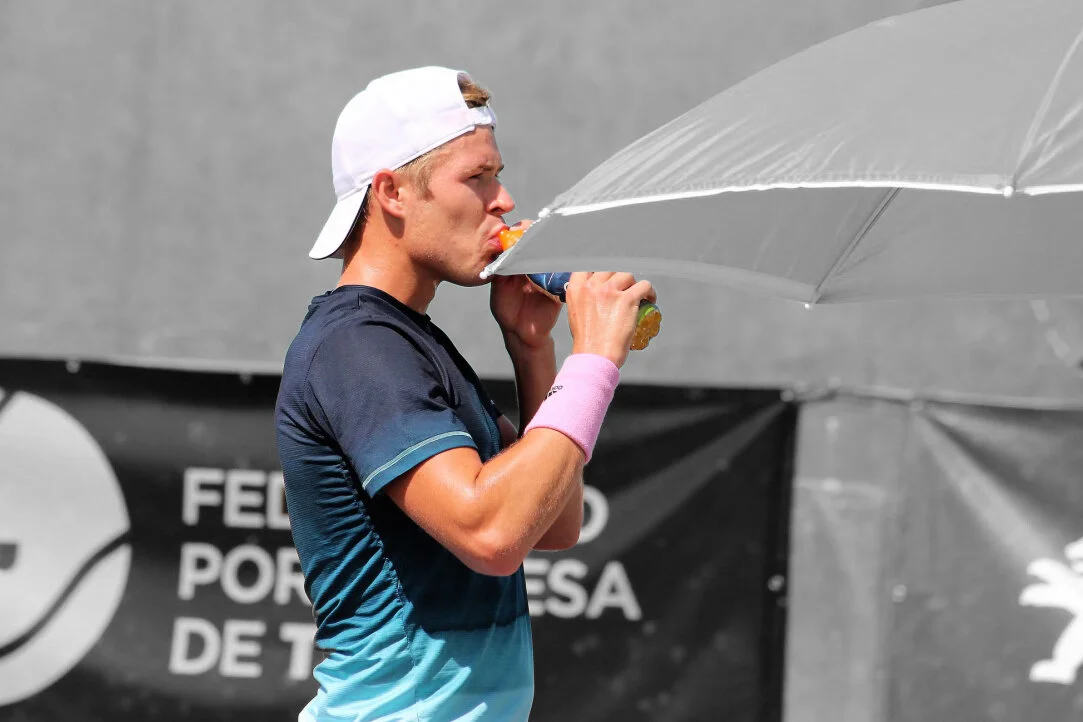Acceptance: The Mental Game of Tennis
The mental game plays such a huge part in tennis. Without a strong mental performance, we can’t maximise our physical, technical and tactical capabilities. The mental game plays a large role at all levels. From 8-year-old mini tennis players, all the way to the top of the professional game. One of the most prevalent examples of this is a guy we all know well. Someone I’ve played against and spent time with: Nick Kyrgios. (Kygs, if you’re reading this right now, apologies for the semi-negative media).
He has immense physical abilities, huge weapons and a very high tactical IQ. But the reason he doesn’t maximise these aspects of the game is because he doesn’t always bring a strong mental performance to the tennis court. When he does bring strong mental performances – against the Top 3, Acapulco ATP 500, Washington ATP 500 – he is one of the best players in the game.
So, what does the mental game of tennis actually involve?
Acceptance is the key word. Acceptance is the key skill. Why is it that we see so many juniors lose the first set of a match, get frustrated and the go one to lose a quick second set? It’s because they haven’t been able to accept the situation. They haven’t been able to accept the frustration that they’re feeling.
I can admit to having done this at times during my tennis career. We try to fight our emotions. We try to push against them. We get angry at being angry in the first place. Here’s an example:
Have you ever been really angry and someone’s told you to “calm down”? Did you calm down? Probably not. We end up getting even angrier right?
This is the same conversation that so many of us have within our own minds. We feel frustrated or angry on the court and we try to confront it with “stop feeling angry” and “stop it, calm down”. Sometimes we don’t even notice the frustration and our mind just runs wild- “why am I so bad”, “my forehand is so bad” or “I hate tennis, give up”.
We are all guilty at times to submitting to our emotions, but this is usually due to a lack of awareness of an alternative path.
So, what is the alternative path?
Acceptance. Accepting that frustration is normal. Everyone gets frustrated. Even Federer, Nadal and Djokovic. And it’s not only frustration that we must be able to accept. It’s anger, sadness, fear of failure, nervousness, tightness and embarrassment. You name it. If we don’t accept the negative emotion or thought that is taking us away from maximising our capabilities, then we get caught in a downward spiral of negative emotion.
The longer we allow an emotion to consume our mind without accepting it, the worse we perform, the further behind we go on the scoreboard, and the more intense that emotion ultimately becomes. This continues until we lose the match and are forced back to reality by our angry parent or disappointed coach.
The most mentally tough players are the masters of acceptance. Serena Williams has won 10 grand slams after being 5 or less points away from losing the match as some point during the tournament. In 3 of the Grand Slams that she’s won, she actually saved match points. Those are remarkable stats. Do you think she’d be able to turn matches around from the brink of defeat if she wasn’t able to accept the losing situation and turn her focus onto something positive?
So how can we learn to accept?
The first stage is to become aware of the negative emotions that we’re experiencing. Without first being aware, we cannot accept the negative emotion.
One great way to develop this awareness is to ask yourself “How am I feeling?” after each point. Once we become aware of the negative thoughts and emotions that we are experiencing, we then need to accept them as normal and not try to fight them.
““How am I feeling?”
“I’m feeling angry because I just missed an easy smash.”
“Okay, it’s normal to feel this anger, it happens to everyone. Right, next point””
This is how the internal dialogue should be. We shouldn’t try to confront and fight our emotions. I discuss this in depth and give a step by step guide on how to master the mental game of tennis in “My Guide to Mental Toughness.”
In my free guide I break down ‘The Mindfulness Method’ for you, making it really simple to apply each of the stages – one of them being the ability to accept. The guide gives you a very clear framework to become mentally tough and the best thing about it is that it’s easily applied to your game. It gives plenty of examples, talks about how I used the methods when serving out a match at Wimbledon and includes worksheets so that you can use the methods during your own practices and matches.
““The principles taught in the guide are easily understood, and more importantly, easy to put into practice. For anyone wanting to develop their mental toughness, this is a great place to start.””
Thanks for reading. I hope we can all begin to accept and master the mental game of tennis.



